Brexit and a cultural way forward, together
18 Feb 2020
Collaborations in Europe have been through turbulent times before; Europe has overcome many severe crises and has bridged deep divisions in the past. And today, now that United Kingdom’s withdrawal from the European Union has become a reality, we, foundations & cultural institutions working in Europe respond by strengthening our ties.
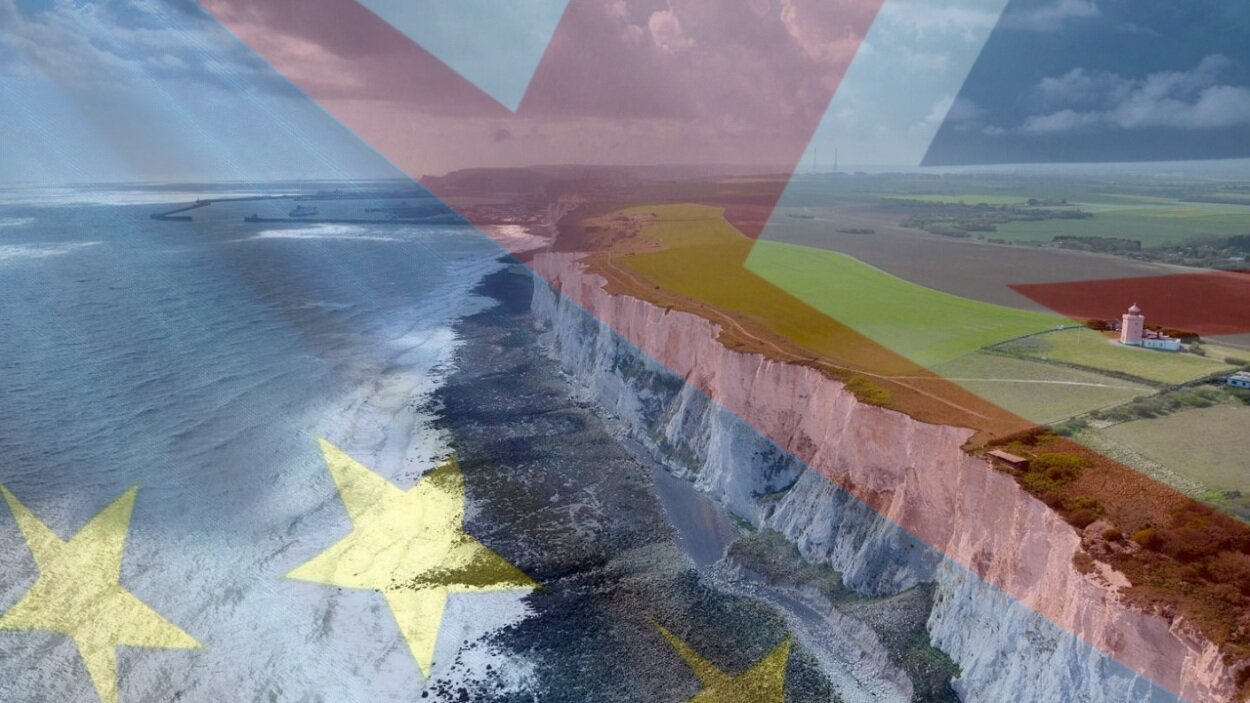
Brexit is a symptom and not a cause, and it is an indicator of social and cultural fault lines in British society. Moreover, ‘Brexit’ is a Europe-wide, even global phenomenon in it representing growing gaps between communities, between citizens and their political representatives, and between political ideas. We consider Brexit an igniting moment in time that creates a new positive sense of urgency and forges a renewed commitment to building and strengthening shared European cultural spaces, of which the UK has always been and will always be part.
We are convinced the ongoing political and institutional alienation between the United Kingdom and the rest of the EU must not lead to a more cultural and societal separation, neither in the UK nor in other European societies. We want to look beyond the institutional realities and emphasise the importance of relating to each other in person, through both everyday encounters: at work, while travelling, in libraries, cafés and pubs, and also online interaction.
True cultural exchange and European experiences can counter the widening gaps between people and can help to overcome political divides. We believe in an open, democratic and inclusive Europe. Culture plays an important role in that, as the space for exchange and dialogue about differences, and the goal is to unearth frictions – we don’t need to all agree but we do need to talk to each other.
Based on our experiences, long-standing cooperation and broad networks, we are committed to creating even more European sentiment, through shared European experiences and more European exchanges. For all Europeans: in the countryside or in cities, living in the East or in the West, in the North or the South, born here and arrived here. We need to work, learn and live together.
Therefore, we will intensify our activities and efforts to enable communities and individuals across Europe to co-shape their dreams, their futures, a common cultural space, with creativity and in cooperation. We will develop new initiatives and programmes that will maintain and regenerate institution-to-institution, network-to-network, but most importantly people-to-people contacts. With this we will engage as many people from different walks of life and divergent opinions as possible.
We invite you – citizens, socially engaged practitioners, opinion makers, cultural workers and representatives of institutions – to join us in co-shaping a European cultural space!
initiators:
Allianz Kulturstiftung [Esra Kücük, Managing Director]
British Council [Andy Mackay, Regional Director EU, and Kate Arthurs, Director Arts]
Compagnia di San Paolo [Matteo Bagnasco, Head of Goal Culture, and Paola Sabbione, Goal Culture]
European Cultural Foundation [André Wilkens, Director]
Goethe Institut [Elke Kaschl-Mohni, Regional Director Southwest Europe, Delegate for European Affairs, and Katharina von Ruckteschell-Katte, Director, Head of the London Office and the Northwestern Europe Region]
signatories:
Are We Europe [Kyrill Hartog, Editor-in-chief]
ASSIFERO [Carola Carazzone, Secretary General]
Association France-Grande Bretagne [Patrick Hénault, President]
Atlantis Culture [Nora Hadjisotiriou, Founder and Director]
Bafe – Bellevue Association, part of Bosch Alumni Network [Giuseppe de Simone, President]
Balkan Producing House [Kalki Aporia and Vivien von Abendorff, Founders]
Balkans Beyond Borders [Konstantina Karydi, Co-founder and Non-executive Director]
Bergen International Festival [Anders Beyer, Chief Executive & Artistic Director]
Beyond the Border Wales International Storytelling Festival [Naomi Wilds, Artistic Director]
BMW Foundation Herbert Quandt [Michael Schaefer, Chairman of the Board]
BOZAR [Paul Dujardin, CEO and Artistic Director]
Brave New World producties [Claudia Woolgar, Creative Producer]
Callias Foundation [Jan Moritz Onken, Artistic Director]
Calouste Gulbenkian Foundation [Rui Esgaio, Secretary General]
Calouste Gulbenkian Foundation UK Branch [Andrew Barnett, Director]
CaravanCultura [Yelena Kharitonova, Founder]
Chorus [Yannis Pappas, Co-founder & Treasurer]
Circostrada Network [Stéphane Segreto-Aguilar, Coordinator]
City Proms Festival [Margot Hoiting, Director]
CreArt. Network of Cities for Artistic Creation [María Mozo, Coordinator]
Cultural center “Nikola Djurkovic” Kotor [Milica Popovic, Marketing Consultant]
Culturepolis [Vasileios Laopodis, President and Founder]
Culture Action Europe [Tere Badia, Secretary General]
Culture Liverpool [Claire McColgan, Director]
De Balie [Yoeri Albrecht, Director]
Diadrasis [Laura – Melpomeni Tapini, Managing Director]
Deutsche Gesellschaft für Ur- und Frühgeschichte – DGUF [Diane Scherzler, President]
Donors and Foundations Networks in Europe – DAFNE [Max von Abendroth, Executive Director]
Dutch Culture [Cees de Graaff, Director]
ECHO – European Concert Hall Organisation [Andrew Manning, Secretary General]
EDN – European Dancehouse Network [Gaja Lužnik, Production and Network Manager]
East of Elsewhere [Clementine Butler-Gallie, Co-Founder]
EFA – European Festivals Association [Kathrin Deventer, Secretary General]
Eleusis 2021 European Capital of Culture [Maria Panayides, Chief Executive Director]
ELIA [Maria Hansen, Executive Director]
ENCC – European Network of Cultural Centers [Sara Turra, Coordinator]
Europa Nostra [Sneška Quaedvlieg – Mihailović, Secretary General]
Europa Nostra UK [Sara Crofts, Chair]
European Choral Association – Europa Cantat [Sonja Greiner, Secretary General]
European Community Foundation Initiative [Anja Böllhoff and James Magowan, Coordinating Directors]
European Creative Business Network [Bernd Fesel, Director]
European Democracy Lab [Marie Rosenkranz, Research Associate]
European Economic and Social Committee [Luca Jahier, President]
European Folk Network [Nod Knowles, Administrator]
European Foundation Centre [Massimo Lapucci, Chair and Gerry Salole, Chief Executive]
European Jazz Network [Giambattista Tofoni, General Manager]
European Music Council [Ruth Jakobi and Simone Dudt, Secretaries General]
European Press Prize [Thomas van Neerbos, Director]
eurozine [Filip Zieliński, Managing Director]
Erste Stiftung [Boris Marte, Deputy Chairman of the Board and Franz Karl Prüller, Senior Advisor]
Evens Foundation [the Evens Foundation team]
Franco-British Connections [Jean-Pascal Sibiet, Founder, Lise Peron, Vice-President, Harry Edwards, Vice-president, Alex Lake]
Fondation de Luxembourg [Tonika Hirdman, Directrice Générale]
Fondazione CRC [Giandomenico Genta, President, Ezio Raviola and Giuliano Viglione, Vice Presidents, Davide Merlino, Paolo Merlo, Michelangelo Pellegrino, PierGiorgio Reggio Members of the Board of Directors, and Andrea Silvestri, Managing Director]
Fondazione CRT [Massimo Lapucci, Secretary General and Stefania Coni, International project coordinator]
Fondazione Giangiacomo Feltrinelli [Massimiliano Tarantino, Director]
Fondsen in Nederland [Siep Wijsenbeek, Director]
Forum on European Culture [Yoeri Albrecht and Cees de Graaff, Curators]
Foundation for Open Society DOTS [Ieva Morica, Executive director]
4Change [Sandra Oliveira, President of the Board]
4iS – plataforma para a inovação social [João Pedro Sousa Rosa, Director]
Green Music Initiative [Jacob Sylvester Bilabel, Founder]
Groningen University, Cultural Leadership Research Master Programme [Katherine Watson, Cultural Leader in Residence]
Haarlem Artspace [Olivia Punnett, Catherine Rogers, bev Shephard, & Geoff Diego Litherland, Directors]
Head 4 Arts [Kate Strudwick, Creative Director]
Helmut K. Anheier [Adjunct Professor of Social Welfare UCLA Luskin, and Professor of Sociology at the Hertie School]
HR Advice & Coaching Wijnhoven [Gill Wijnhoven, Director]
iac Berlin [Darius Polok, Managing Director, and Vinzenz Himmighofen, Bosch Alumni Network Coordinator]
IDFA – International Documentary Filmfestival Amsterdam [Cees van ‘t Hullenaar, Executive Director]
IepenUP [Jacco de Boer, Editor in Chief]
Incorporated Society of Musicians in the UK [Jeremy Huw Williams, President]
Intercult [Iwona Preis, Director]
Irish street arts, circus and spectacle network [Lucy Medlycott, Director]
İKSV – Istanbul foundation for culture and arts [Görgün Taner, General Director]
Johannes Harm Hovinga [artist]
Katapult [Oli Pinchbeck and Declan Mee, Directors]
Leeuwarden [Sjoerd Feitsma, Deputy Mayor for Culture]
Leeuwarden-Friesland, European Capital of Culture 2018 [Sjoerd Bootsma, Artistic Director]
Leeuwarden UNESCO City of Literature [Marleen Nagtegaal, Artistic Director]
Literature Wales [Lleucu Siencyn, Chief Executive Officer]
Madeleina Kay [#EUSupergirl]
Manchester Jazz Festival [Steve Mead, Artistic Director]
MitOst [Jotham Sietsma, Managing Director, and Naomi Martin, Program Manager Actors of Urban Change]
Moleskine Foundation [Adama Sanneh, Co-founder and CEO]
More Europe [Sana Ouchtati, Director of ‘external culture relations’]
National Centre for Early Music [Delma Tonlin, Director]
NEMO – Network of European Museum Organisations [Julia Pagel, Secretary General]
New Noardic Wave [Joris Hoebe, Director]
Oerol Festival [Siart Smit, General Director]
On the move [Marie Le Sourd, Secretary General]
Oranjewoud Festival [Yoram Ish-Hurwitz, Artistic Director]
Orthos Logos [Alexopoulos Constantine, Founding Publisher]
Other Music Academy [Valentin Schmehl, Project Manager]
Parrabbola [Philip Parr, Artistic Director]
Pigeon Bridge [Zane Estere Gruntmane, Founder and Managing Director]
Pier21 [David Lelieveld, Producer]
Prins Bernard Cultuurfonds [Adriana Esmeijer, Director]
Pro Helvetia [Philippe Bischof, Director]
PRS Foundation [Joe Frankland, CEO]
Rijeka 2020 – European Capital of Culture [Emina Višnić, CEO]
Rosetta Arts [Sanaz Amidi, Chief Executive]
Sadler’s Wells [Alistair Spalding, Artistic Director and Chief Executive]
Schwarzkopf Foundation [Anne Rolvering, Executive Director]
Sense of Place [Joop Mulder, Artistic Director]
Studio Vezza Pellegrino [Alessandra Salvadori, Fiscal Advisor]
Talking Transformations [Manuela Perteghella and Ricarda Vidal, Project Leaders]
Teatro dell’Argine [Micaela Casalboni, Co-Art Director]
Theatertreffen [Yvonne Büdenhölzer, Director, Maria Nübling, Head of Theatertreffen Stückemarkt and Necati Öziri, Head of Theatertreffen International Forum]
Theatr Iolo [Lee Lyford, Artistic Director]
Theatre Entropia [Marilli Mastrantoni, Artistic Director]
The Artists’ Association of Finland [Teemu Mäki, Chairman]
The Everyone Foundation [Richard Watts]
The Festival Academy (an initiative of the European Festivals Association) [Inge Ceustermans, General Director]
The Green Room [Gwendolenn Sharp, Director]
The Museum of Loss and Renewal [Tracy Mackenna and Edwin Janssen, Directors]
Trac Scotland [David Francis, Director ]
Trac Wales [Danny KilBride, Director]
Trans Europe Halles [Mieke Renders, Managing Director]
Van Gendt Philanthropy Services [Rien van Gendt, Director]
Veszprém-Balaton 2023 [Zoltán Mészáros, CEO, and Can Togay János, Creative and Artistic Director]
Voorheen de Gemeente [Agnes Winter, Artistic Director]
World Cities Forum [Genevieve Marciniak, Relationship Manager]
World Press Photo [Lars Boering, Managing Director]
Would you like to sign this statement and/or do you have examples of collaborative projects involving Europeans on both sides of the Channel? Send your information to fwiersum@culturalfoundation.eu and we will add them to this page.
Do you represent a foundation and want to contribute to our plans? Get in touch via oalexeeva@culturalfoundation.eu
Examples of collaborative projects:
Allianz Kulturstiftung
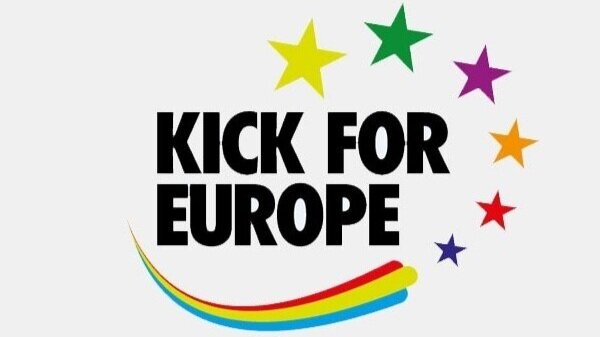
In the stadium, they all cheer on their team. In the Kick for Europe encounters “Diversity in Danger” in Warsaw, Vienna and Sheffield, young people from Poland, Austria, Great Britain, Spain and Germany discovered what else connects them beyond football. The objective is to harness their enthusiasm for football in order to discuss European political topics that are also present in the world of sports, such as rightwing populism, migration and integration. And of course, there is always time for the occasional kick-about.
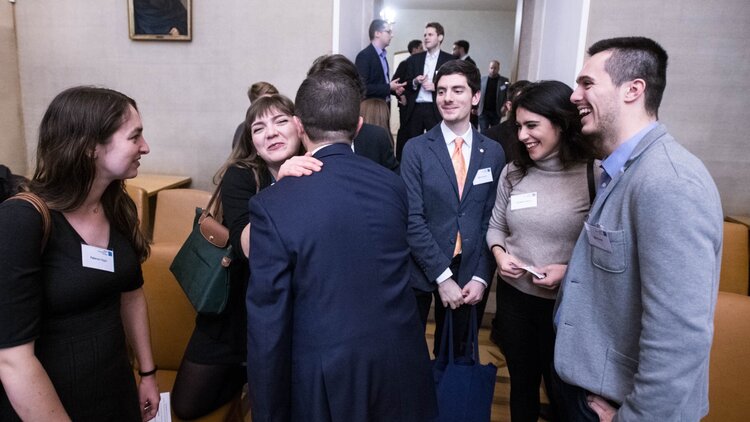
The Young Leaders Program of the Allianz Kulturstiftung has been creating a platform for young Europeans with a passion for shaping our joint future for the past 15 years. In September 2020 the Alumni Network will come together to share their visions for a strong EU-UK relationship post-Brexit, equipping them with tools and contacts to develop their own initiatives on strengthening social cohesion across borders. We welcome you to join us for the opening event of the conference in Oxford on 25 September entitled “What about the Union_Jack?”.
Balkan Producing House
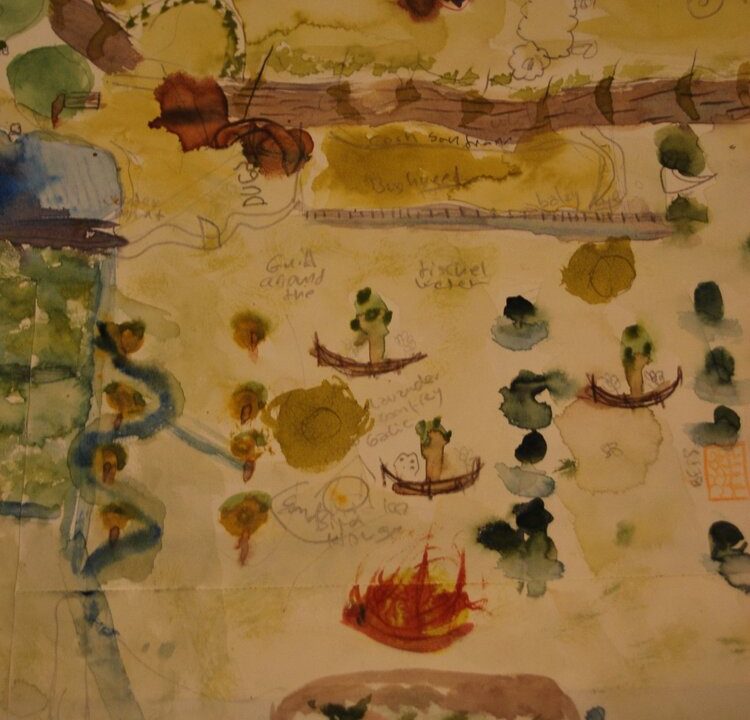
The Balkan Producing House is a cultural NGO based in Serbia, set up by a dual heritage, British/Serbian citizen (from London), Vivien von Abendorff, and a Dutch citizen, Kalki Aporia, who moved to start a new life in rural Serbia. Our goal is to support mobility, accessibility, creativity and innovation in the arts by creating cultural exchanges, collaborations, educational and R & D activities in the performing arts, between the UK, Serbia and the rest of Europe. We are also aiming locally to revive culture in the rural region of Srem (Vojvodina, Serbia). We have recently been joined by a Dutch theatre business manager and a Russian producer. Our activities stem from a STEP grant which funded our first collaboration with Serbia as individual theatre-makers (Balkan Producing House didn’t exist then) in a co-production with National Theatre Sterija Vrsac in 2014 and took 3 artists and our show (‘I am not Antigone’) to Amsterdam Fringe Festival. This production was also funded by Amsterdam Art Fund and Dutch Embassy in Prague; the show later performed in Brighton, London, Amsterdam, Prague and toured 5 Serbian cities.
Since then we have embarked on a series of projects:
– We partnered the David Glass Ensemble (UK) with the Serbian National Theatre (Novi Sad) for the AB Project (an international youth empowerment theatre project with 9 participating countries) and continue to assist as an independent third party.
– We offer a residency and performances in Belgrade to winners of the Otherplace/Balkan Award at Brighton Fringe Festival (UK)
– This year a British playwright, John Knowles, who wrote a play set in Serbia, is coming to us with a team of people to develop and perform his work in Belgrade.
– We are hosting a creativity workshop led by world-renowned British theatre director and teacher, David Glass, open to professionals of any kind, from all industries.
– Jonathan Brown, an award-winning British playwright and performer is running a 10 day course for solo theatre-makers, where performers will develop new material with us and perform in London at the Cockpit Theatre.
– A German theatre teacher and his students are retreating to us for a workshop.
– A Norwegian photographer will be running a photography workshop.
– We are also developing our own community theatre projects, where we will be working with the local municipality as well as hoping to connect to larger European cultural institutions.
BOZAR

“Performance(s) Between Two Shores” works with Arab artists living in Europe, and is a collaboration between leading European cultural organisations and arts festivals, backed by the European Commission. As for many other EU-funded initiatives, “Performance(s) between two shores” is based on a strong pan-European partnership, including with partners such as Shubbak Festival in the UK.
“Performance(s) Between Two Shores” is one of these numerous projects that art centres such as BOZAR and others have been developing with UK partners for decades. And the list for BOZAR is long, from exhibitions on Stanley William Hayter (1928), David Hockney (1992), or Gilbert & George (2011) to the Europalia Festival Great Britain [image] in 1973, or the workshop on “Moving Beyond Brexit: Uniting the Cultural and Creative Sectors” in 2016.
British Council
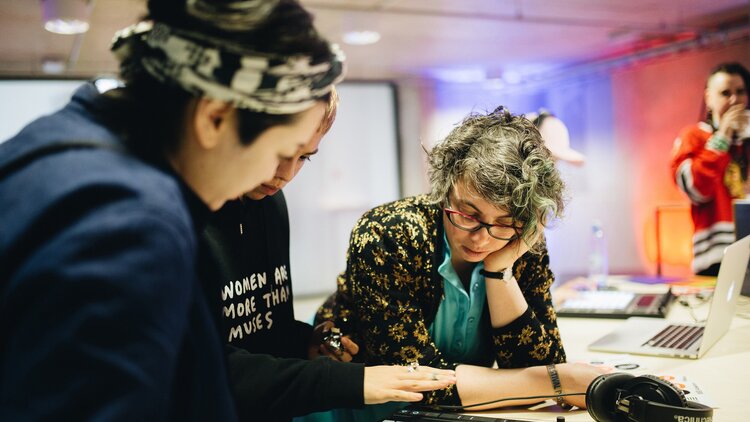
Creative Europe’s cooperation projects in 2014-2018 UK organisations benefitted from €89.5million in funding from Creative Europe. To date, the creative and cultural sector has received €26.1million via the Culture sub-programme, primarily through Cooperation Projects’ support for cross-border partnership initiatives in Europe. In 2019 the UK was the joint-most partnered country, and the value goes beyond the financial reward to greater collaboration, building cultural relationships and knowledge sharing. For example, the award-winning Keychange project, a collaboration between the UK’s PRS Foundation and music festivals and organisations in Iceland, Germany, Sweden Spain and Estonia, has campaigned for gender balance at music festivals in Europe by 2020. The project has successfully gained support from festivals such as Glastonbury, and artists Kate Nash and Peaches. Keychange 2.0 was awarded €1.6million from the Culture sub-programme in 2019 to accelerate their campaign and add additional partners. This work had also paved the way for gender equality to become a key part of the future Creative Europe programme in 2021-27.
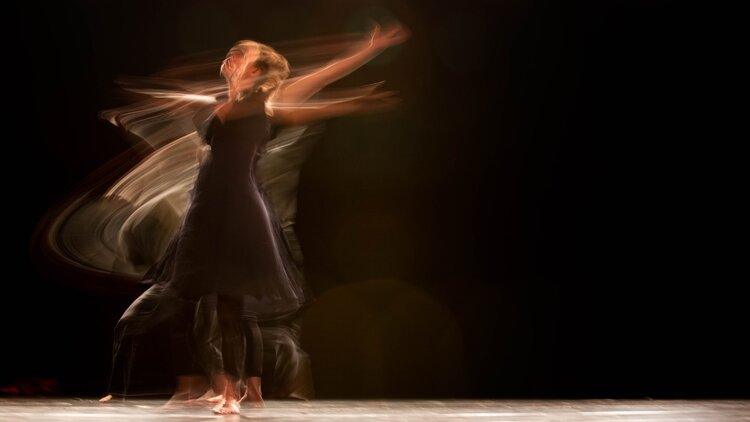
Creative Europe’s artists’ mobility pilot ‘I-PORTUNUS’ the first ever EU-funded artist mobility scheme i-Portunus was a Creative Europe pilot programme of three calls that ran in 2019, with 343 Europe-based artists selected to partner with creatives across 36 countries. Much more than simply travel funding, the overall aim was to boost innovation and competitiveness in Europe’s cultural sectors through short-term artist mobility, and pave the way for long-term support in this area. The UK was one of the most successful countries for the final call, with 11 UK-based Performing and Visual Artists selected for funding. Participants’ comments on the collaborative process and outcomes reflect a positive experience, for example: “These connections did make me feel that the UK/European family was genuinely close, with shared worries, joys, laughs, and the experience combated that isolationist point of view that we often encounter in UK. It was therefore a very fruitful, fulfilling project.”
ECHO – European Concert Hall Organisation
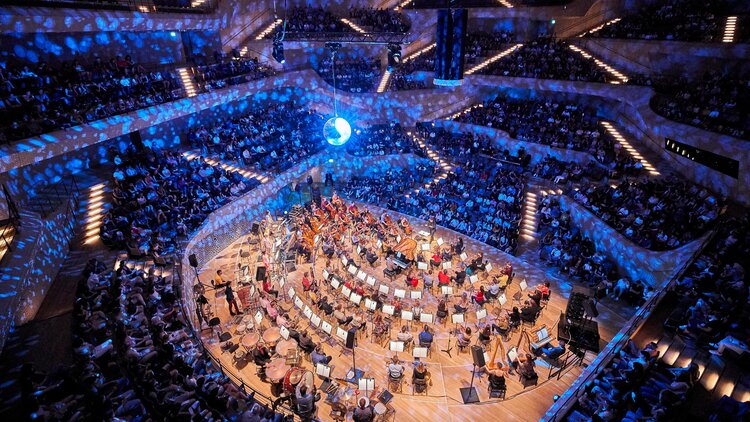
One of the founding venues of the ECHO network was Birmingham’s (then freshly inaugurated) Symphony Hall Birmingham, forming a peer network with other leading venues such as the Concertgebouw in Amsterdam and the Musikverein in Vienna.
In the upcoming 2020/2021 artistic season two exceptional young British Artists – Baritone James Newby and Saxophonist Jess Gillam (as part of a cohort of 6 artists from across Europe) – will tour venues all over the ECHO network meeting and engaging with diverse audiences and communities all across Europe.
Colleagues from our three fantastic UK member halls (Barbican Centre London, Sage Gateshead and Town Hall & Symphony Hall Birmingham) continue to play a valued and active role in our European collaboration.
Over the coming months examples include Senior colleagues from our UK halls being on the panel of the international symposium The Art of Music Education in Hamburg on the theme of the civic role of concert halls as socially engaged actors, as well as being on a European committee at a major new international competition (La Maestra) to support female, being held at the Philharmonie de Paris in March.
Several of our UK halls are also active partners in ECHO’s EU funded platform Classical Futures Europe supporting international emerging talent in our industry (which in 2020 will support 82 artists from 25 different countries).
European Community Foundation Initiative
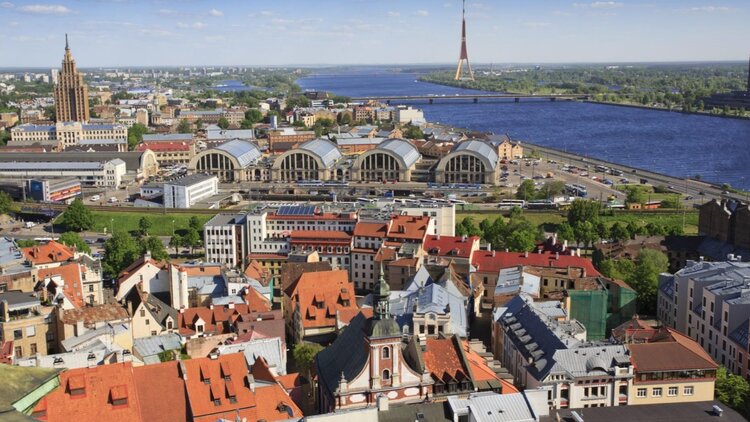
ECFI’s activities are bridging the gaps between all countries in Europe, no matter if they are part of the EU or not. This study visit to Latvia by Leeds Community Foundation is just one example.
European Cultural Foundation
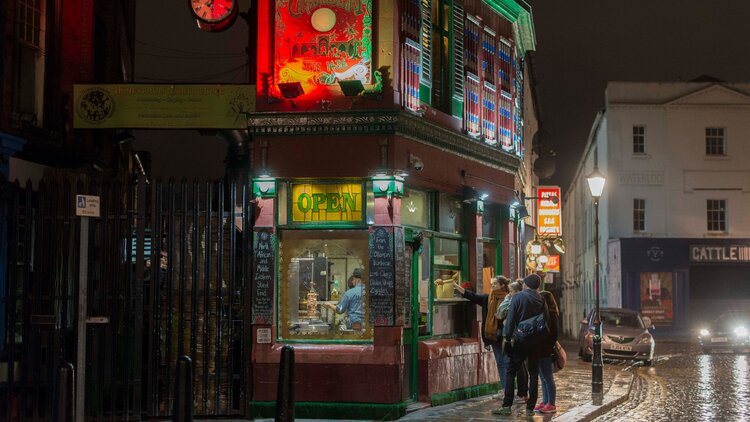
TANDEM is a cultural collaboration program by European Cultural Foundation and MitOst that strengthens civil society in Europe and neighbouring regions. Since 2011, Tandem has brought together more than 400 independent cultural organisations and supported the professional development of over 320 cultural managers coming from more than 160 cities and 35 countries in wider Europe. Browse through the many collaborations that involved British in Tandem programmes.
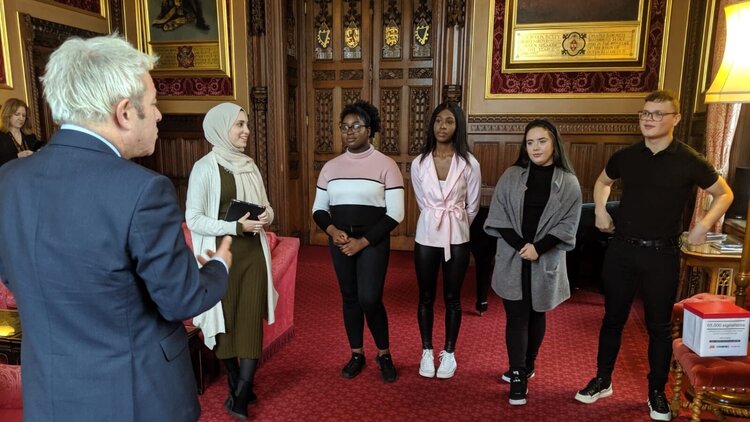
In 2019 the European Cultural Foundation opened two grant calls under the Democracy Needs Imagination annual theme. In the two rounds, we received more than two thousand applications, more than we ever dreamt of and more than we could ever grant. In both rounds, British initiatives were well presented amongst the grantees.
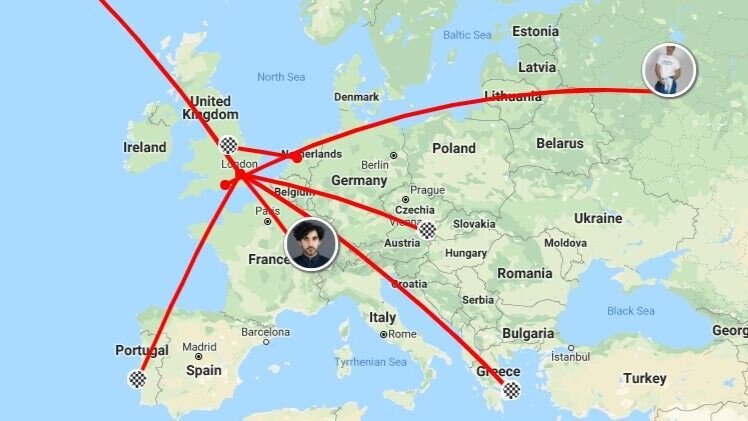
Between 2003 and 2019 STEP travel grants supported creative and critical artists travelling across Europe and its neighbours, to help foster a society with greater solidarity, participation, equality and a stronger sense of social justice. During its existence, this initiative by European Cultural Foundation and Compagnia di San Paolo enabled 2,300 trips across 59 countries, including many from and to the United Kingdom.
European Folk Network
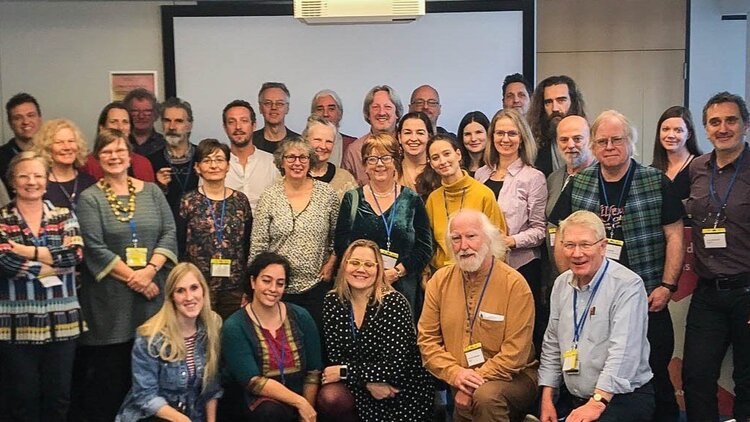
European Folk Network is the new democratic, not-for-profit membership network for everyone working in traditional music and arts in Europe. It exists to support and broaden awareness of the arts of tradition as a cultural and educational force in Europe and believes that the diversity of cultural identities in Europe is expressed and celebrated through traditional music and associated performing arts. EFN’s aims are: to encourage, promote and support developments for folk music and associated arts in their diverse forms and origins; to create opportunities for artists, organisers and audiences from European countries to meet, communicate and collaborate; and to foster relationships with artists, organisers and audiences beyond Europe. EFN was initiated by a partnership between three UK folk organisations – trac Cymru (Wales), Traditional Arts and Culture Scotland and English Folk Dance and Song Society and the Flemish music support organisation VI.BE. Born from an idea and discussions starting in 2015 and now formally established with a legal structure and constitution, EFN already has over 80 subscribing members from 22 European nations and held its inaugural conference in Brussels on 28 and 29 November 2019.
The Festival Academy
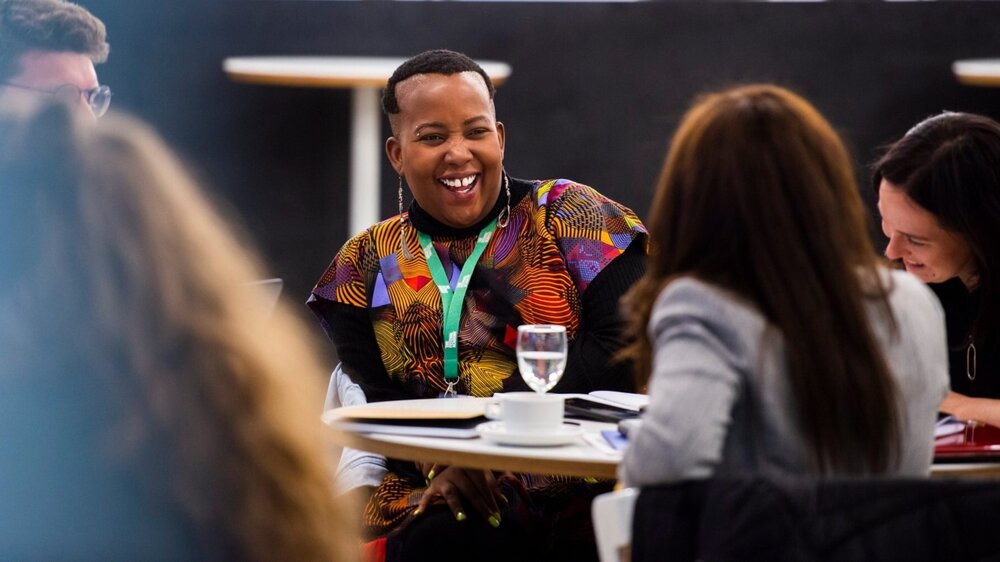
The Festival Academy is a non-profit organization initiated by the European Festivals Association in the joint belief that festivals are bridging platforms with a direct link to people and civil society structures. It provides capacity building and different training formats globally to emerging festival and arts managers worldwide. We believe that through our training programmes, a critical reflection between arts and cultural managers worldwide can bring about positive change, informed awareness, ideas and proposals for actions through personal human relations and based on knowing, respecting and tolerating different value and belief systems. We encourage leadership, entrepreneurship and new collaborations and initiatives that come out of our training programmes. In each of our programmes festival and arts managers from the UK take part and Brexit as well as maintaining a dialogue between UK and Europe through culture and arts is high on the agenda as well as a growing interest of participants from UK to take part in our programmes as a way to continue engaging in a European and global dialogue. We are a growing global network of 700+ festival managers from 80+ countries.
Franco-British Connections
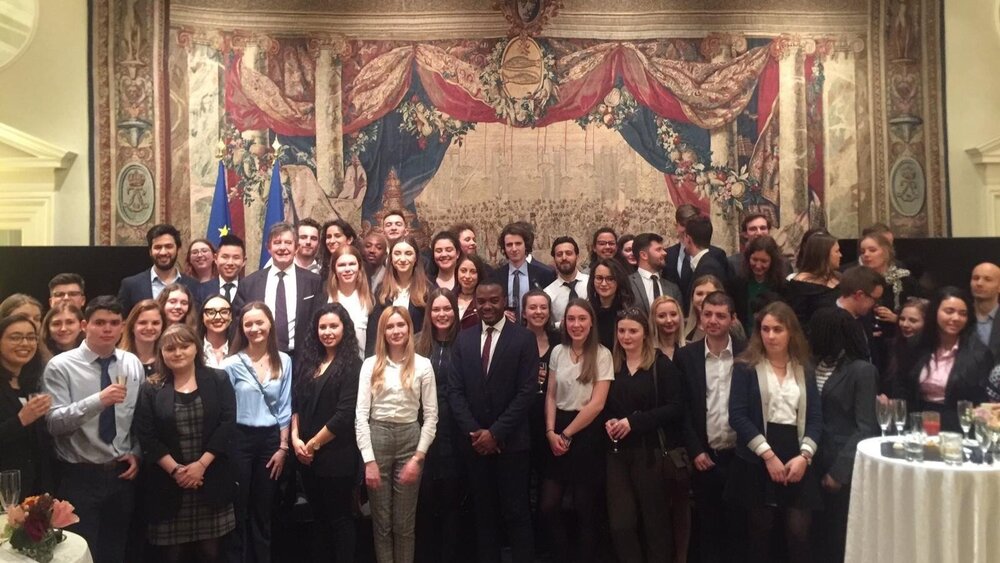
The Franco-British Connections is a non-profit and non-political association that aims to encourage students to develop their own cross-Channel initiatives. Our events have attracted students from over 30 universities from France and Britain, including Oxford, Cambridge, ESCP, King’s, LSE, QMUL, Imperial College and UCL in the UK, and the Ecole Polytechnique, Sciences Po, HEC, ESSEC, ENA, Assas, ENS, ULIP and the Sorbonne in France.
The philosophy of the FB-Connections is to encourage and help students to develop their own projects. We view student-led events as complementary to the regular course-based cooperative projects devised by university administrations. Students are often not aware of their potential to organise important and mutually beneficial events with their colleagues from other universities; this is where the FB-Connections strives to act as a catalyst, by putting students in touch with alumni who have organised Franco-British events in the past and by giving them access to our broad network of institutional contacts in both France and Britain.
To promote innovation, the structure of the association is project-based, whereby students are required to be in charge of their event, always bringing their own ideas to bear on the project. Once students successfully complete a project, they join the ranks of the alumni who are able to advise the next generation of students, bringing with them the new contacts that were made and a new experience to share. More than an association, we view ourselves as an informal network of people who wish to contribute to the development of Franco-British relations at the university level. This means that suggestions for events sometimes arise in cooperation with alumni and institutional partners who are keen to be involved.
Past events have included student conferences with students from both France and Britain, online essay competitions, interviews and debates on Franco-British themes, lectures and alumni reunions.
Goethe Institut
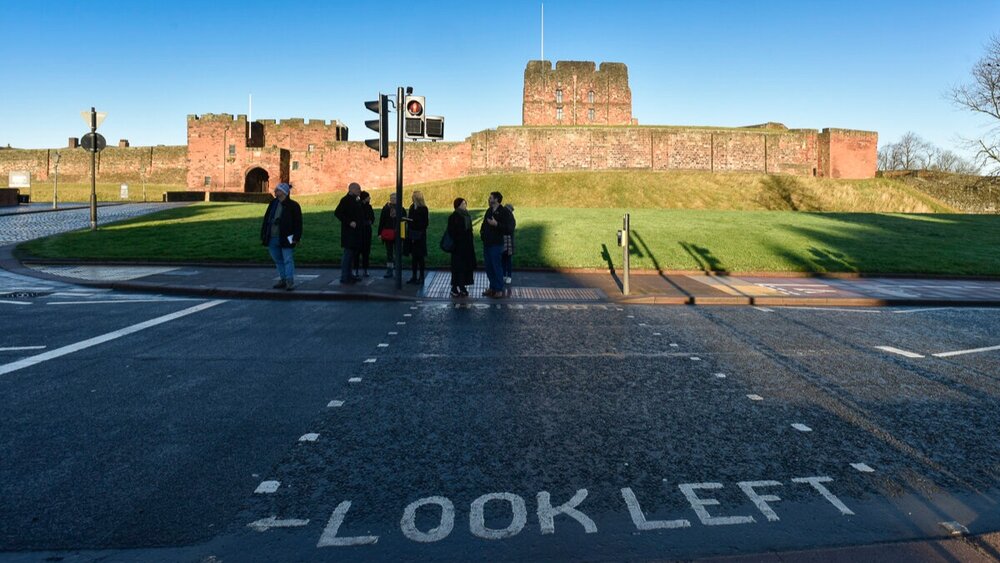
Freiraum is a project of the Goethe-Instituts in Europe in cooperation with 53 actors from culture, science and civil society. Around 40 European cities are investigating the question: What is freedom in Europe today? Where is it in danger? How do we strengthen them?
Head 4 Arts
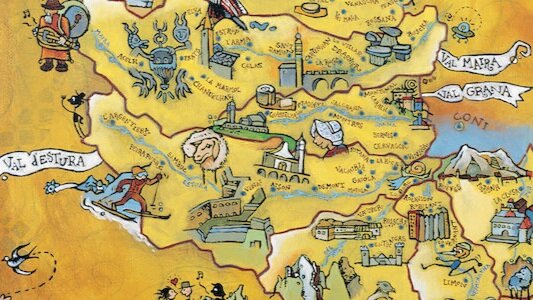
#ProjectPont is a new international social reading and augmented reality project born from the collaboration with several European partners. Together they will explore myths and legends from the Occitan and Welsh oral heritage in search for similarities, recurrent themes and places, to revive it in 21st century storytelling tools.
IETM
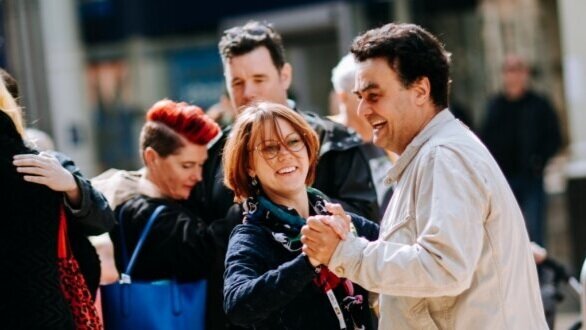
Because IETM believe today’s societies cannot do without contemporary performing arts, IETM connects thousands of professionals worldwide and makes them even stronger.
The world’s population is increasingly urban and that is also reflected in the arts sector. But what happens beyond the metropolis? What does it mean to be an artist in a rural context? What models of practice are there, working with existing culture, connecting communities and re-exploring traditions? IETM asked in their Fields of Vision.
IETM asked themselves the question: is involving everyone something we want to deliver in theory but something we find hard to deliver in practice? We also debated the language used and whether terms like “inclusion” are more problematic than helpful.
Their upcoming sixth edition of IETM Campus will be a week of intensive training in all aspects of international working. It is a great opportunity for a group of 20 – 25 participants to start internationalising their careers guided by the key players in the international performing arts field.
Leeuwarden

In the run up to and during Leeuwarden 2018 we have shared beautiful moments with English and Scottish cities, and we love to maintain those. In November 2020 Love Letters From Europe will be staged in Leeuwarden during the Explore the North festival, it is a follow-up of Love Letters to Europe which took place in Edinburgh during the Burns Festival 2019.
Literature Wales
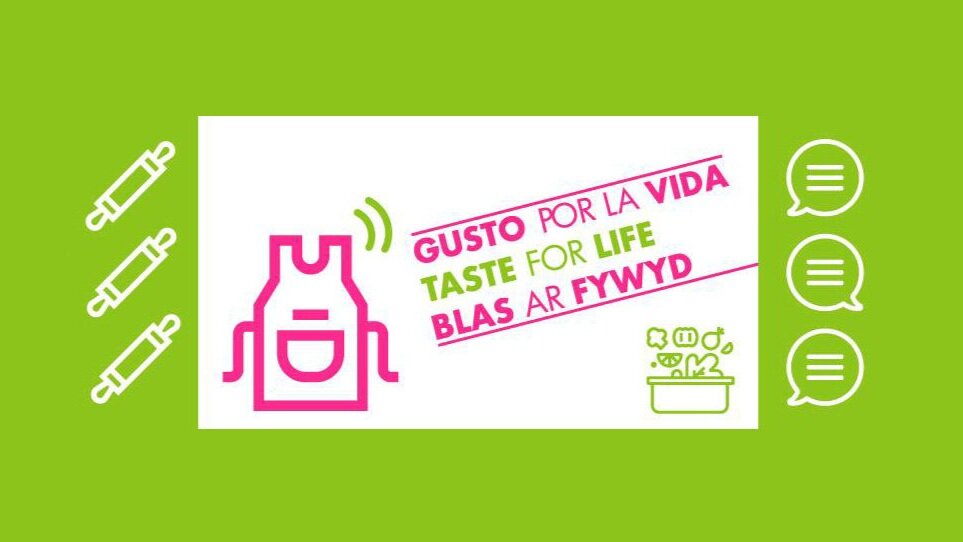
Literature Wales has been active in European exchanges in various shapes; in a collaborative project with a Spanish partner on aiming to tackle loneliness and isolation amongst older people; in presenting poets of the First World War and contemporary responses to their work as in organizing public events on to discuss language, literature and identity.
Madeleina Kay
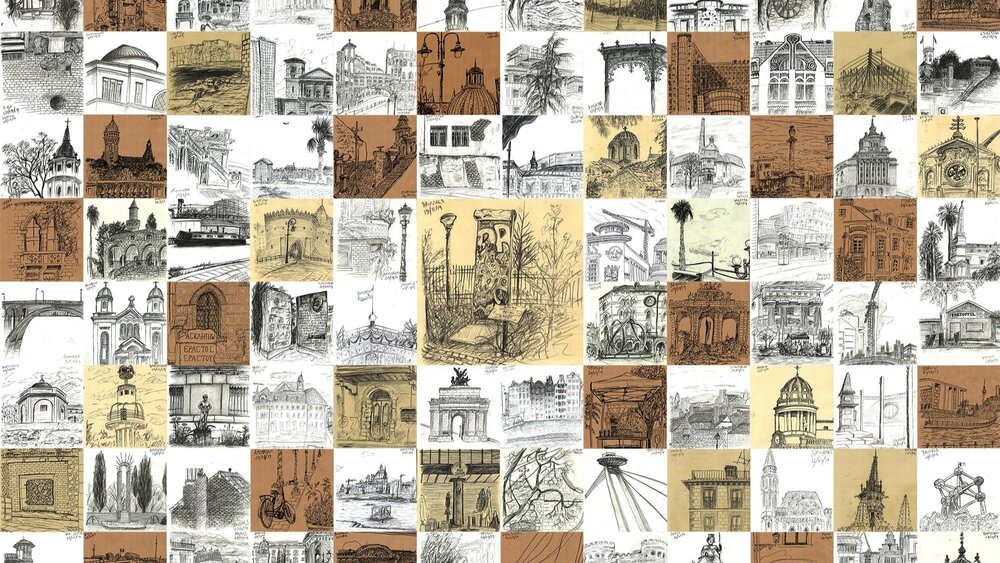
Madeleina Kay captured her “time wandering the streets of Europe documenting our continent through sketches and photography.” She presented her views on her vision for the UK 2030 and how to heal Brexit wounds in a lecture at the London School of Economics.
Theatre Entropia
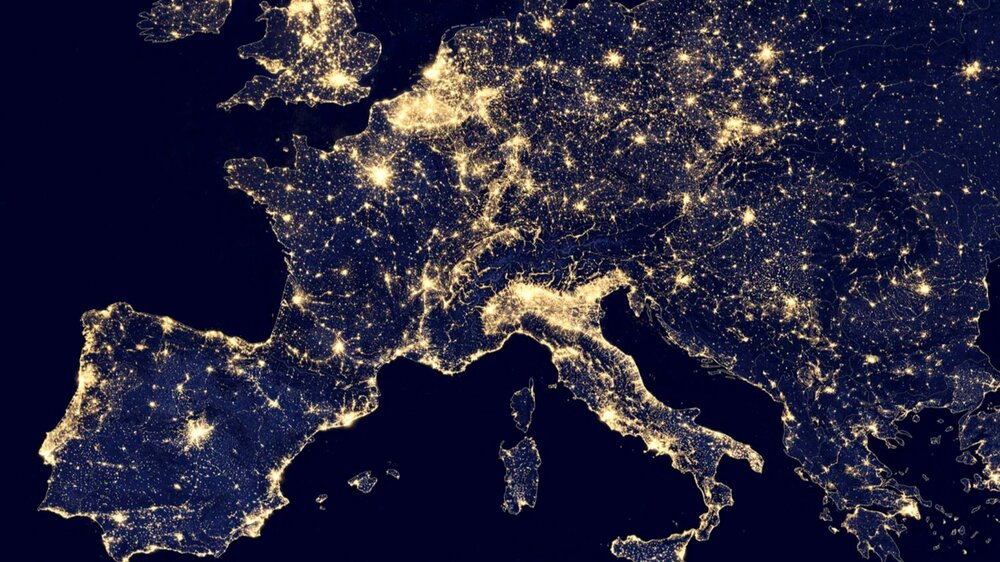
Extended Universe is a transmedia theatre project – 4 theatres across Europe, 4 theatre makers and young people co-creating a connected story in multiple parts across multiple platforms. It will be investigating new ways of telling stories across cultures and borders in countries where young people have become increasingly politically active. Entropia and partners in UK, Spain and Denmark are exploring how artistic collaboration across borders can make theatre more relevant for young people.
